Self Introduction in English for Job Interviews: A Guide
29 Dec, 2025
Welcome Offer for First Time Customers Get 15% off USE CODE: NEW15 AT CHECKOUT

Welcome Offer for First Time Customers Get 15% off USE CODE: NEW15 AT CHECKOUT

Welcome Offer for First Time Customers Get 15% off USE CODE: NEW15 AT CHECKOUT

Welcome Offer for First Time Customers Get 15% off USE CODE: NEW15 AT CHECKOUT

Welcome Offer for First Time Customers Get 15% off USE CODE: NEW15 AT CHECKOUT

Welcome Offer for First Time Customers Get 15% off USE CODE: NEW15 AT CHECKOUT

Welcome Offer for First Time Customers Get 15% off USE CODE: NEW15 AT CHECKOUT

Welcome Offer for First Time Customers Get 15% off USE CODE: NEW15 AT CHECKOUT

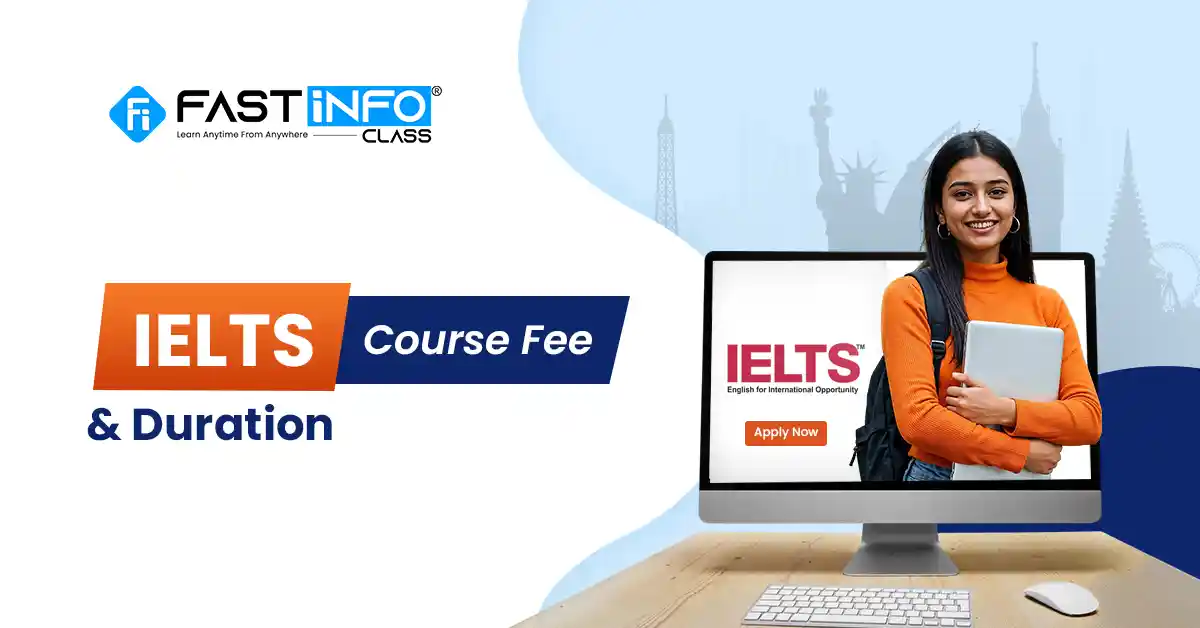
 By FastInfo Class
Published On 31 Jul 2025
Category IELTS
By FastInfo Class
Published On 31 Jul 2025
Category IELTS
Unlocking your IELTS journey doesn’t have to be costly. In India, IELTS course fees typically range depending on format, as online courses are usually more affordable, while offline classes tend to be higher. Crash courses, regular batches, long-term programs, and one-on-one sessions each influence the cost. Quality depends on the institute's reputation, study materials, batch size, and feedback. Pick a course that aligns with your goals, schedule, and values. In this article, you will get a detailed guide on the IELTS course fee in India.
An IELTS course is a structured training program designed to help you prepare for the IELTS exam. It guides you through all four test sections, like Listening, Reading, Writing, and Speaking, using lessons, exercises, mock tests, and expert feedback. Whether it’s Academic for students or General Training for migration, the course teaches strategies, grammar, vocabulary, and time-management techniques relevant to the test format. Good courses tailor support to your strengths and weaknesses, offering live sessions or self-paced content. With curated materials and regular practice, an IELTS course makes your preparation focused, efficient, and confident.
The length of IELTS preparation courses in India varies based on your needs and proficiency:
1. Short-Term (Crash) Courses
These run for 1–2 weeks, ideal for candidates with a solid English base. They offer intensive revision of key skills, typically via consecutive hours of daily training. Perfect for last-minute preparation.
2. Medium-Term Courses
Spanning about 6–8 weeks, this duration supports balanced learning with regular classes and assignments. It suits learners targeting band scores around 6.5–7 and offers thorough coverage of all four modules.
3. Long-Term Programs
These extend from 10 to 12 weeks or more, designed for those starting from lower English levels or aiming for high bands. They prioritise gradual skill-building, personalised feedback, and full mastery.
4. Part-Time Flexible Options
Some coaches offer evening or weekend batches over 3 to 6 months, suitable for working professionals or full-time students balancing IELTS prep alongside other commitments.
FastInfo Class is a leading ed‑tech platform offering personalised one-on-one IELTS online coaching, backed by real-time, interactive sessions. Here’s a detailed look:
Course Fee Structure
Course Duration & Format
A six-week program, with sessions six days per week. Each lesson lasts for 60 minutes, ensuring focused learning. Weekend batch options are available for flexible timing.
Batch Type
Classes are conducted individually, allowing the trainer to tailor lessons closely to your strengths and weaknesses.
Value for Money
Despite being a personalised program, FastInfo Class positions itself as one of the most affordable premium IELTS platforms, combining quality with competitive pricing.
Here is what an IELTS course includes:
1. Structured Training for All Four Skills
An IELTS course covers the four key test areas: Listening, Reading, Writing, and Speaking. It teaches test formats, question types, and how to perform confidently in each module.
2. Strategy-Focused Lessons
You'll learn exam techniques, like reading quickly, organising essays, handling different question types, or speaking naturally under pressure. These strategies help optimise your test performance.
3. Updated Study Materials & Practice Content
Good courses include reliable study materials, official sample papers, topic-specific guides, grammar tips, vocabulary packs, and model answers. Resources often come from trusted sources like Cambridge or the British Council.
4. Mock Tests & Timed Drills
Courses offer full‑length mock tests that mirror real exam conditions, helping you build endurance, speed, and familiarity. Some even track performance trends.
5. Personalised Feedback
Trainers provide detailed reviews, especially for speaking and writing. This feedback highlights strengths, pinpoints weaknesses, and helps you focus on areas needing improvement.
6. Progress Tracking Tools
Courses may include analytics dashboards that monitor your progress over time, highlighting your score improvements and areas needing extra practice.
7. Flexible Learning Options
Many providers offer a mix of live online classes and recorded lessons, allowing you to study at your own pace. Official prep platforms and webinars may also be integrated.
8. Practical Test-Day Guidance
Courses often cover test-day tips, like how to manage time, deal with nerves, and understand the marking criteria, to make your test experience smoother.
IELTS course fees in India typically range from ₹6,000 to ₹30,000, and even higher for personalised coaching. The cost depends on several important factors:
1. Location & City
Major metro cities like Delhi, Mumbai, Bangalore, and Chennai tend to have higher fees due to higher operational costs and demand. Smaller towns or tier‑2 cities often offer more budget-friendly pricing.
2. Course Type & Duration
3. Institute Reputation & Trainer Expertise
Well-known institutes with consistently high results and experienced trainers often charge premium fees. They justify this by offering strong track records, credibility, and quality teaching standards.
4. Study Materials & Added Resources
Courses that include comprehensive study materials like official Cambridge or British Council guides, additional vocabulary packs, unlimited mock tests, and progress tracking dashboards typically cost more. Personalised feedback systems also add value.
5. Flexibility & Support Level
Courses offering flexible timing (weekday, weekend, evenings), lifetime access to recorded sessions, or extra tutoring sessions tend to cost more. Extra support options like doubt-clearing hours or extra mocks also add to the fee.
6. Scholarships & Discounts
Some providers offer discounted or scholarship-driven rates, especially for academic achievers. This can significantly lower the effective cost, even for premium one-on-one packages.
The following details include the IELTS online course fee vs offline course fee:
1. Overall Cost
2. Learning Flexibility
3. Individual Attention
4. Support & Resources
Let us discuss the tips to save money on the IELTS course fee:
1. Make a Realistic Study Budget First
Start by deciding how much time you're comfortable studying. A focused 4–6 week plan can be affordable and effective. Avoid signing up for long, expensive courses you may not finish.
2. Use Trusted Free Study Materials
Before joining any paid course, explore free official materials from IELTS IDP, British Council, or Cambridge. These resources include sample tests and practice PDFs, enough to build a strong base.
3. Opt for Self-Paced Online Courses
Self-paced online courses are budget-friendly. They include recorded lessons and practice tests with much lower cost than classroom training.
4. Choose Group Online Classes
Group coaching online, which are live sessions with others, offers interaction and feedback at moderate prices, without the overheads of in-person centres.
5. Take Advantage of Discounts or Scholarships
Some platforms offer fee waivers or discounts based on academic achievement or early sign-up. Ask about available coupons or payment plans to reduce the fee.
6. Join Free IELTS Masterclasses
Institutes often host masterclasses that are free. Attend these to get high-quality tips, sample strategies, and exam insights, without paying coaching fees.
7. Avoid Rescheduling or Late Changes
Rescheduling or cancelling your test can cost a lot. Book early and stick to your chosen date to avoid these extra charges.
8. Use Peer Learning & Free Mock Communities
Join IELTS prep groups on platforms like Reddit or Telegram where members share mock tests, essays, and speaking prompts. This lowers cost and boosts learning.
9. Practice First, Couch Later
Take time to self-study and gauge your skill level before investing in coaching. If you're already confident of scoring well, reduce coaching sessions or skip them altogether.
10. Bundle Coaching With Exam Booking (If Available)
Some coaching institutes bundle training and exam booking at a discounted rate. While fee waivers are rare on the official exam fee, combining services may save on prep costs.
When preparing for IELTS, it's important to know the difference between the IELTS Exam Fee and the IELTS Course Fee. They serve different purposes and have separate costs.
1. IELTS Exam Fee
2. IELTS Course Fee
Key Differences
Purpose & Usage
Who Sets the Fee?
Flexibility and Refunds
Value Components
Understanding the difference between IELTS exam fees and course fees helps you plan smarter. The exam fee secures your test slot, while the course fee enhances your preparation with expert guidance and resources. Both investments serve unique purposes, as one is mandatory to take the test, and the other boosts your chances of achieving your dream band score. Balance your budget wisely for the best IELTS success. This article provided a detailed guide on the IELTS course fee. Visit Fastinfo Class to get the best IELTS preparation course.
The IELTS course fee in India usually ranges from ₹6,000 to ₹15,000 for online classes and ₹10,000 to ₹30,000 for offline coaching, depending on the institute, duration, and teaching format.
Fees differ based on the institute’s reputation, trainer experience, course duration, batch size, study materials, and whether it’s an online or classroom-based program. Premium one-on-one coaching tends to cost more.
Yes, online IELTS coaching is usually more affordable as it reduces overhead costs. It also offers flexibility and recorded lessons, making it cost-effective compared to classroom training.
No, the IELTS course fee only covers your coaching and preparation. The IELTS exam fee is separate and currently around ₹18,000 in India for Academic or General Training tests.
Yes, you can self-study using free resources like official IELTS practice materials, YouTube tutorials, and free masterclasses. However, paid courses provide structured learning, expert feedback, and practice tests for better results.

Self Introduction in English for Job Interviews: A Guide
29 Dec, 2025
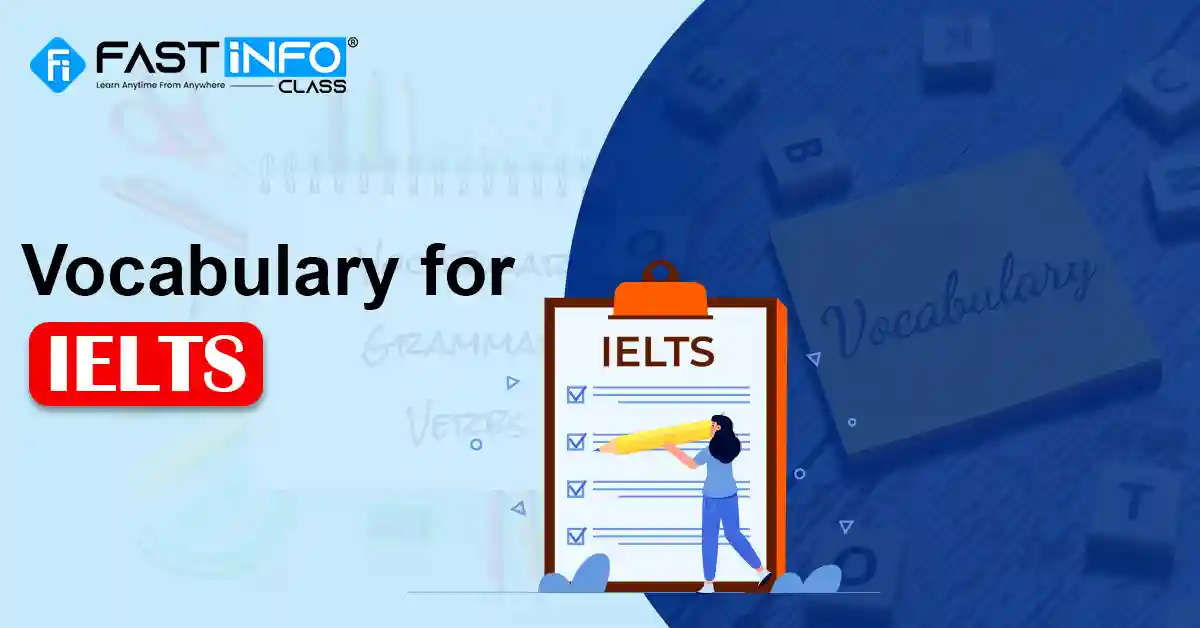
10 Effective Ways to Improve IELTS Vocabulary
05 Dec, 2025

Common IELTS Speaking Topics & Questions for 2025-2026
02 Dec, 2025
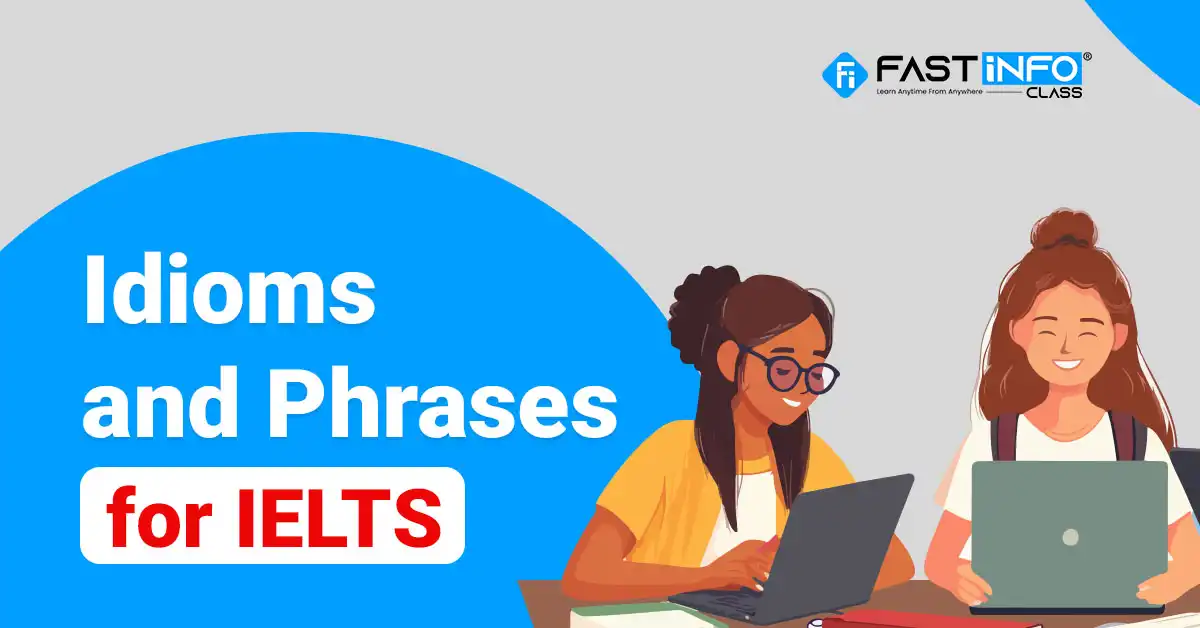
Common Idioms and Phrases for IELTS
02 Dec, 2025

Best Conversation Topics In English For Daily Use
02 Dec, 2025

Daily English Conversation Practice for Beginners: 50 Useful Topics
29 Jun, 2023

Must Read Novels to Improve English for Beginners to Advanced
21 Feb, 2023

Top 15 Spoken English Books to Enhance Your Fluency
09 Sep, 2023
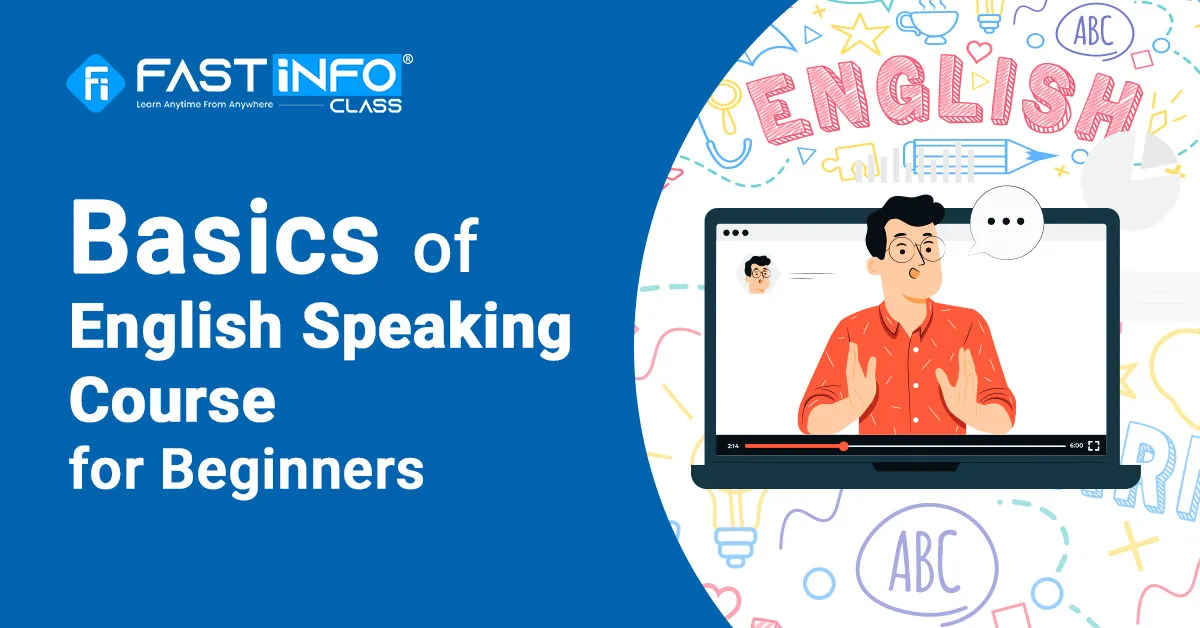
English Speaking Course for Beginners - Everything you must know
22 Sep, 2021
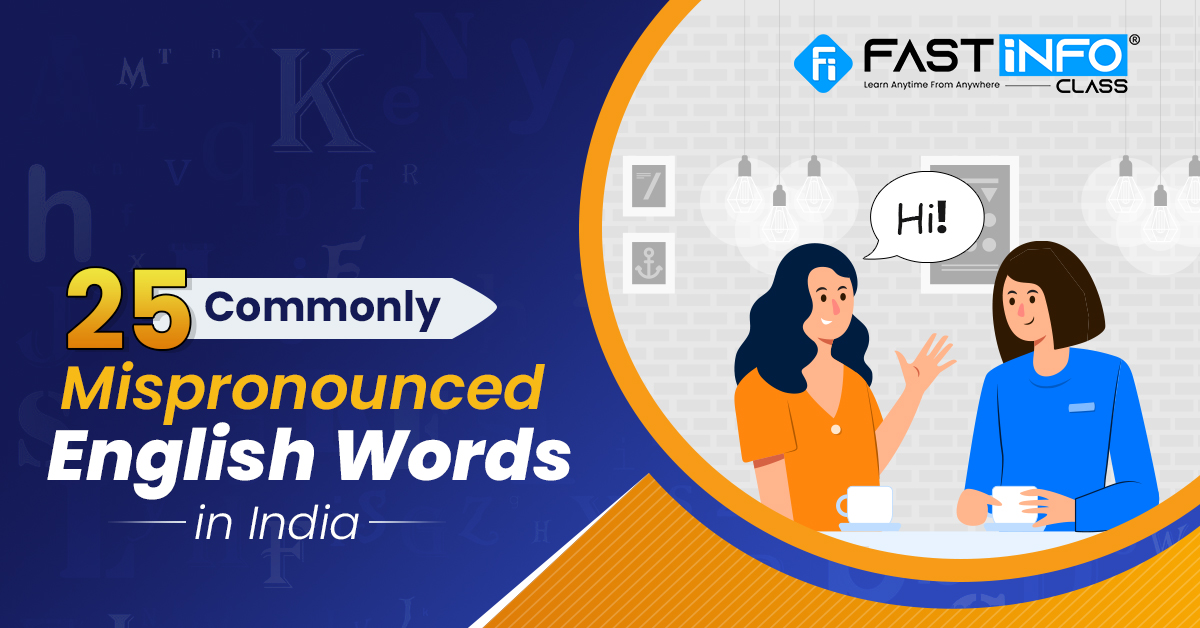
25 Commonly Mispronounced English Words in India
26 Apr, 2024